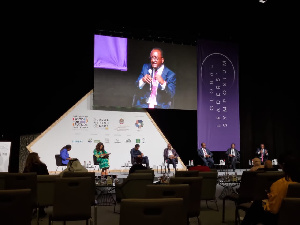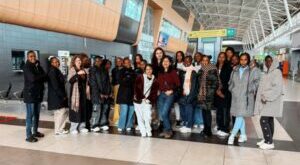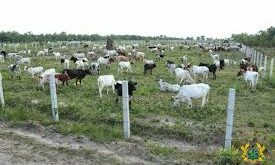The Chief Executive Officer of the United Arab Emirates Trade Centre, Mr. Walid Hareb, has urged Ghana to establish a cocoa trading platform in Dubai.
According to him, the platform, which could be a pilot project, would make Dubai the central point of Ghana’s cocoa, where the raw beans and chocolate could be traded, adding that, such a platform would help Ghana access the European and the Arab markets “because the whole world is in Dubai”.
The Dubai businessman made this appeal when the Minister of Food and Agriculture, Dr. Owusu Afriyie Akoto, called on him.
While at the Undersecretary for the Standard and Legislation Sector of the Ministry of Industry and Advanced Technology of the UAE, Madam Farah Alzarooni, in Dubai noted that many companies in the UAE were using cocoa powder to produce chocolate.
“So if we focus on cocoa by giving it a push here, it will help us position Ghana’s cocoa to feed our manufacturing food hub. It would also boost the trade in the product. It will also help grow the trade relations between Ghana and the UAE,” she said.
Dr. Akoto was in the UAE at the invitation of the Minister of Climate Change and Environment of the UAE, Madam Marian bint Mohammed Al Mheiri, to attend a Food for Future Summit and Expo at the just ended Expo 2020 Food, Agriculture and Livelihoods Week.
In his response, Dr. Akoto said such mutual collaboration was significant since it would ensure that Ghana sold cocoa products directly to manufacturers in Dubai.
According to him, Ghana was keen on getting investors to partner, “so that we can consolidate what we have and also expand it”.
Dr. Owusu Afriyie Akoto, at the forum, described the country as a fertile ground for investment where businesses thrive in a peaceful environment.
He said the stable political atmosphere, coupled with vast opportunities, put the country on the global map as an investment destination.
Dr. Akoto mentioned some of the measures the government had embarked on to ensure food security to include the Planting for Food and Jobs, Rearing for Food and Jobs, Planting for Export and Rural Development initiatives, Greenhouse technology and mechanization, which he said had generated interest in farming among the younger population.
He, however, acknowledged that despite the successes chalked up by the flagship programs, there was still much work to be done to maximize opportunities in the sector.
The Minister said, currently, rice production in the country stood at 622,000 metric tonnes (MT), even though demand was 2,450,000 MT, while demand for soya was 616,200 MT, out of which the country could only produce 209,000 MT.
He explains that the demand for tomatoes was 1,048,000MT, while the country could produce only 437,526 MT; poultry sector demand was 375,000MT, out of which the country could produce 65,415 MT, while dairy production was currently at 56,160 MT, although demand was 466,050 MT.
Dr. Akoto further said the country had 13.6 million hectares of land suitable for agriculture, with 6.6 million uncultivated, while 1.9 million hectares were designated as the potential for irrigation.
He said there was also a total length of 6,917 water resources in the country, with soil and agro-ecological conditions suitable for multiple crops and livestock production.
The minister also said investors could set up large-scale integrated poultry farms, including feed production, hatchery, packaging, cold storage, and marketing, as well as vaccine and drug production factories.
Source: ghanaguardian.com
 Home Of Ghana News Ghana News, Entertainment And More
Home Of Ghana News Ghana News, Entertainment And More





